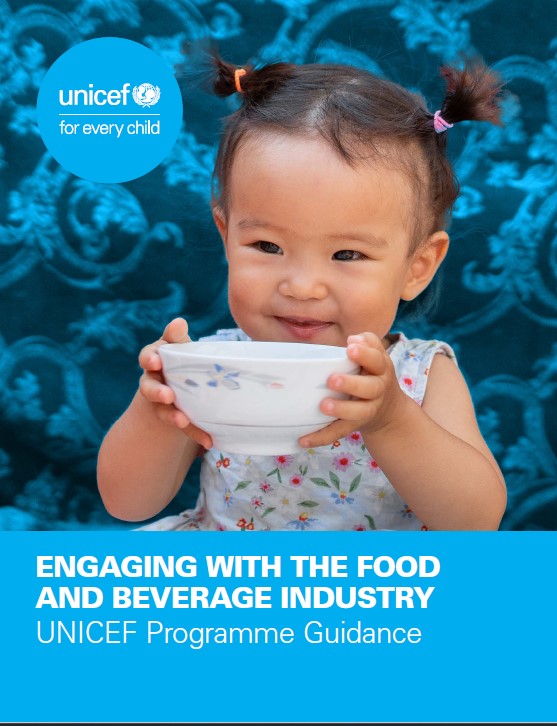Weekend reading: UNICEF policy on engagement with food and beverage companies
UNICEF does not want its statements to be compromised by conflicted interests with food and beverage companies that make formula or foods for children.
Here’s how UNICEF will be dealing with the food and beverage interests.

This publication explains just how UNICEF intends to avoid conflicts of interest with companies making products that do not promote childrens’ health.
The practices and products of a subset of the F&B industry whose primary business is the production, distribution, marketing and retailing of ultra-processed foods and beverages (UPF) pose particular concern. The companies producing these unhealthy, nutrient-poor UPF – rich in sugar, salt, trans-fats and food additives and preservatives – are major drivers of today’s broken food system and the global epidemic of childhood overweight and obesity and diet-related non-communicable diseases…It is now widely accepted that the practices and products of the UPF industry harm children’s and adolescents’ lives and have become the main commercial determinant of childhood malnutrition and disease.
Evidence shows that direct partnering with the UPF industry (i.e., working with) and voluntary UPF industry initiatives do not translate into large-scale sustainable results in transforming food systems for children. Further, direct funding engagements with UPF industry stakeholders pose a significant reputational risk to the credibility of UNICEF programming and independence as governments’ trusted advisor for policy formulation, normative guidance and programme scale-up for children and adolescents.
UNICEF says it will, among other measures (my emphasis):
- Continue to advocate for the F&B industry not to be included in public policy making.
- Continue avoiding all partnerships with F&B industries that violate the Code.
- Avoid all partnerships with ultra-processed food and beverage (UPF) industries.
- Exclude Code violators and UPF industries in UNICEF-led business platforms.
- Engage responsibly with the F&B industry in humanitarian response.
These commitments are a major public health advance. Let’s hope UNICEF sticks with them.

